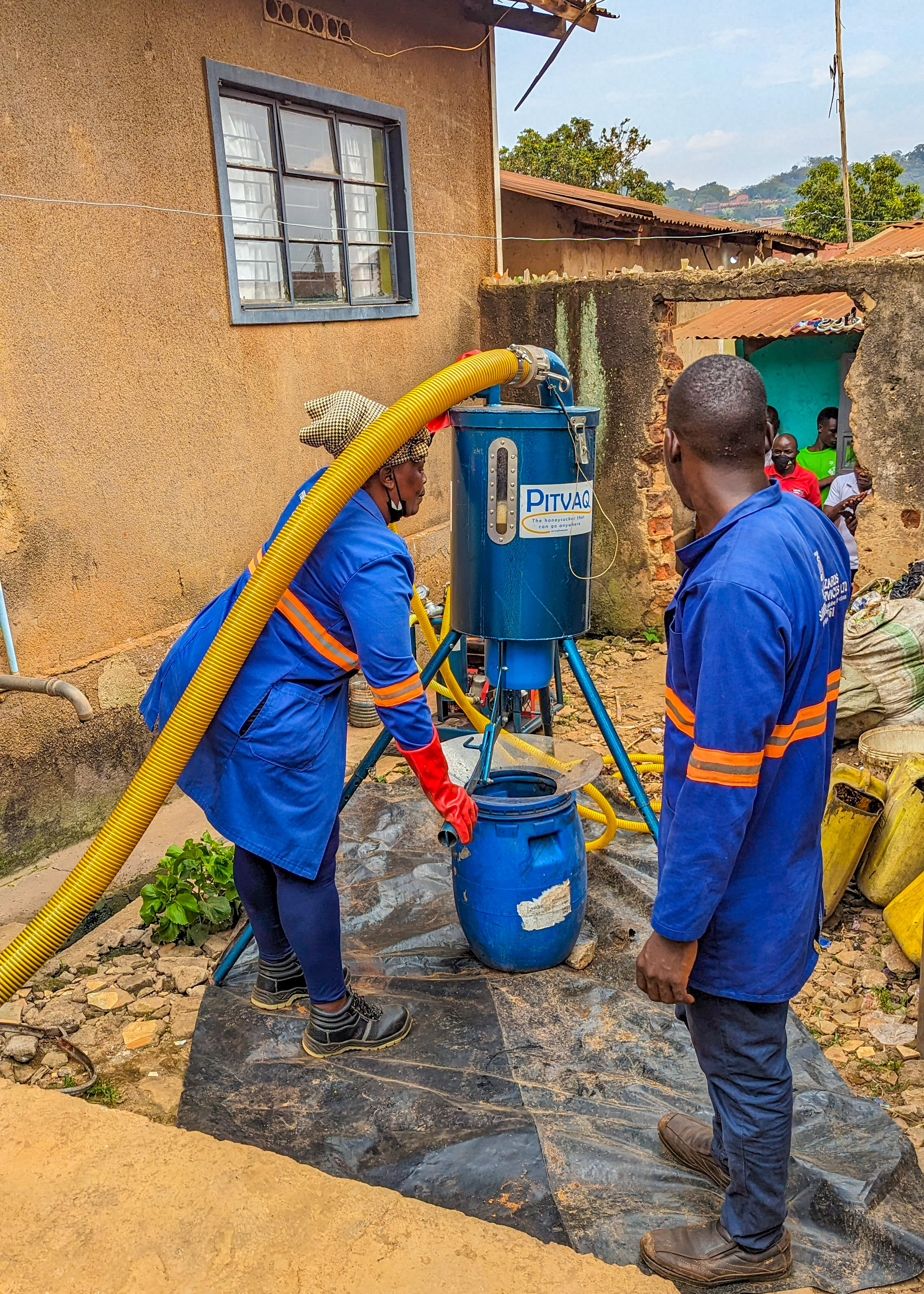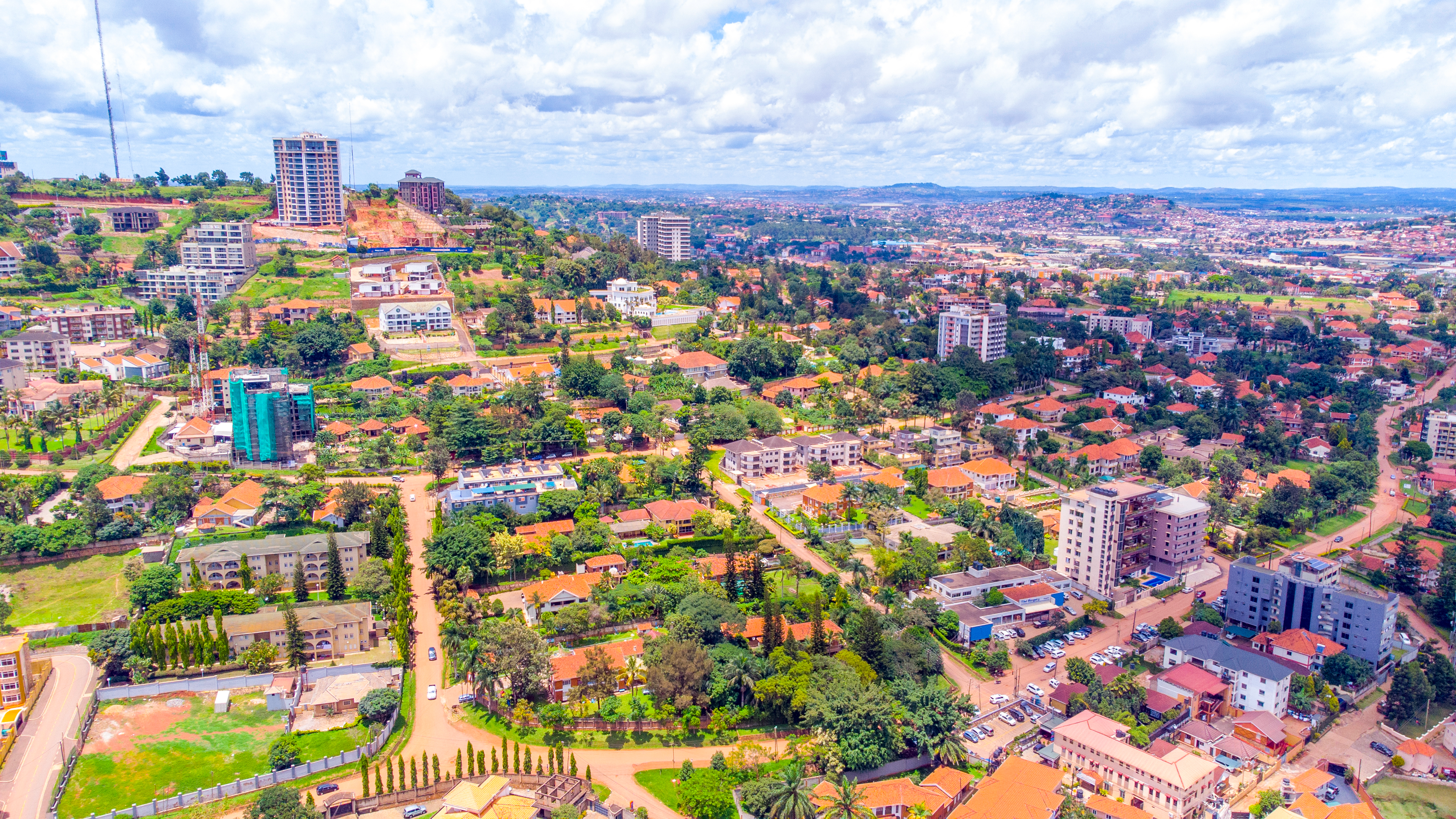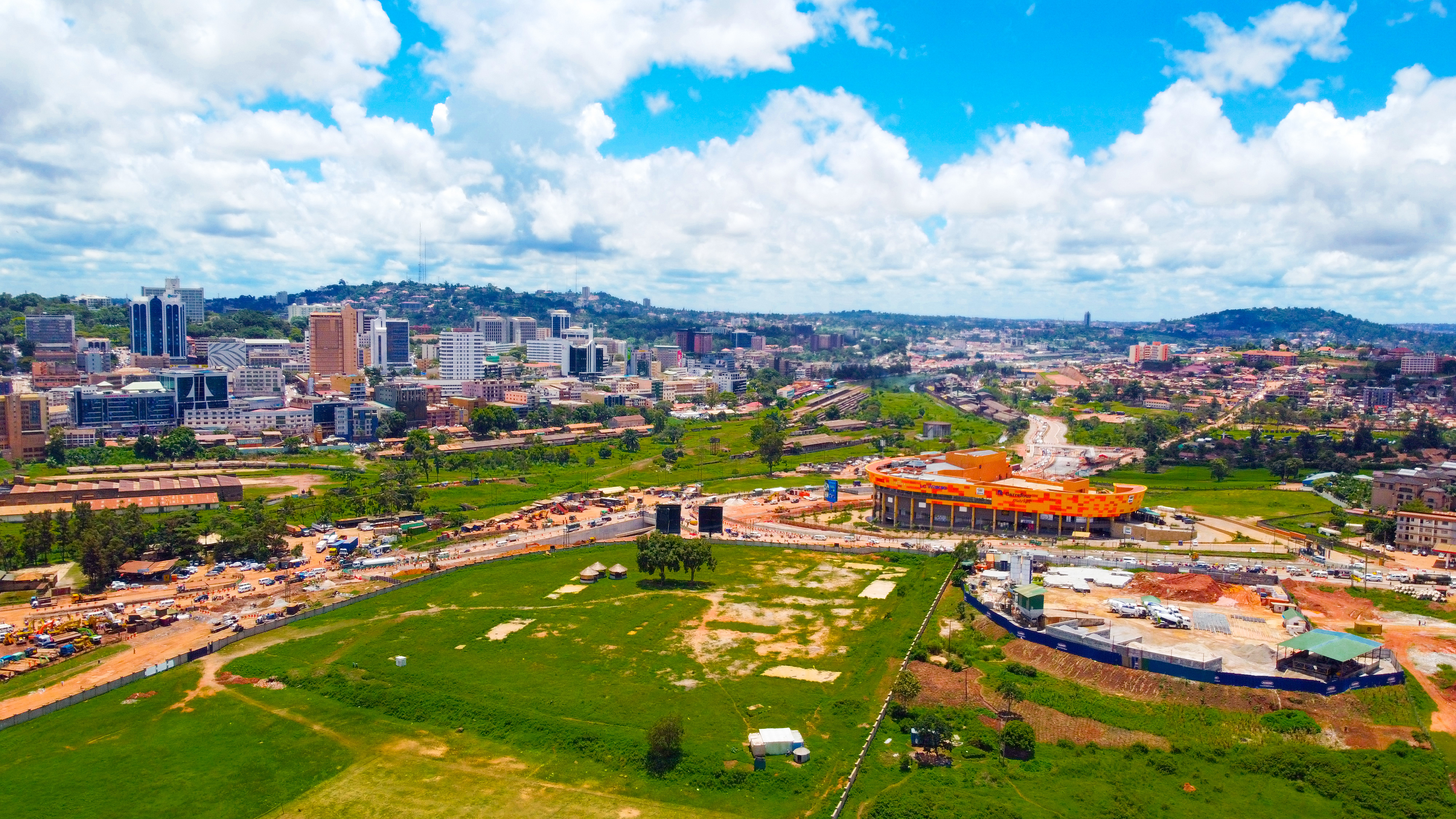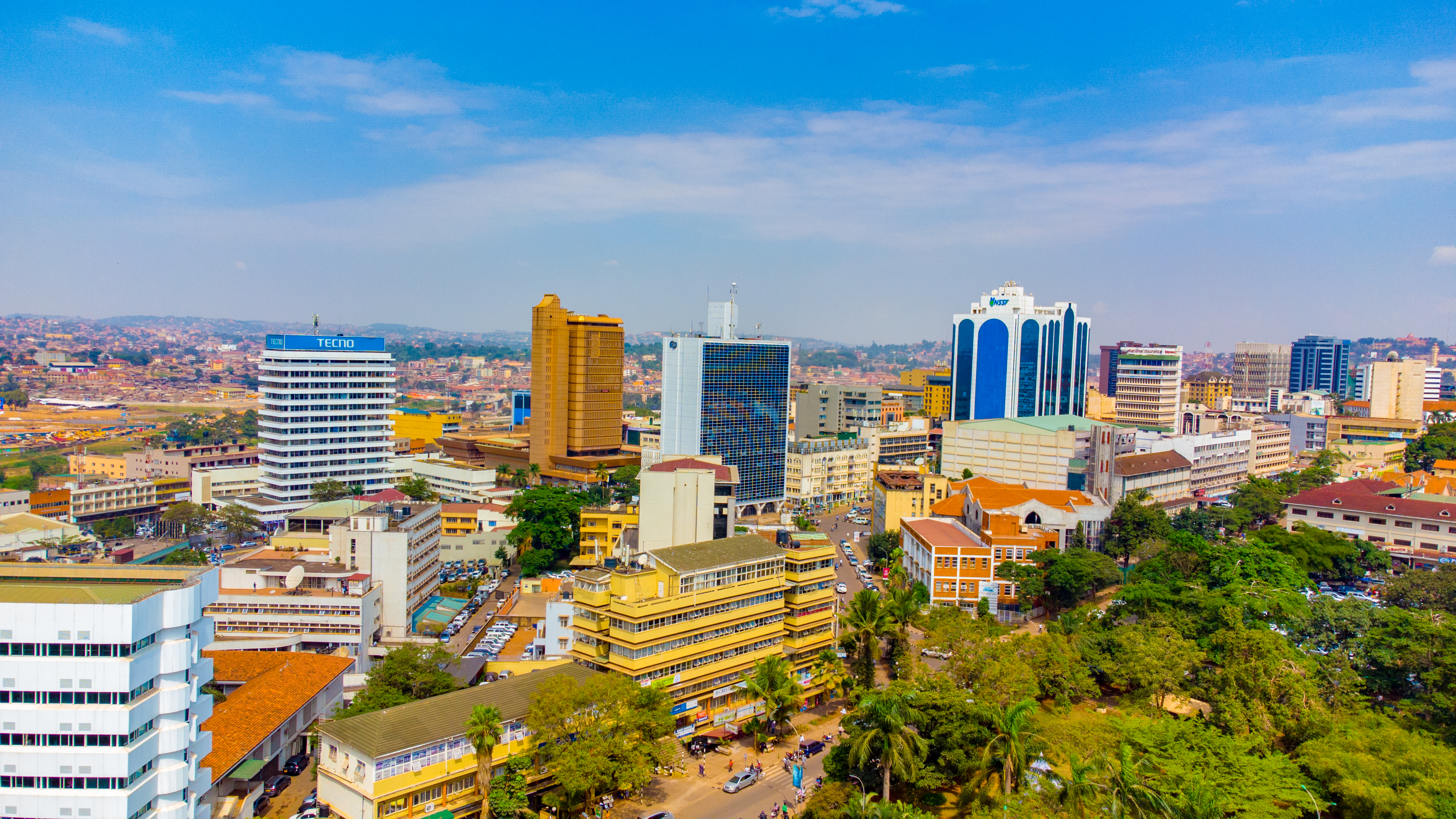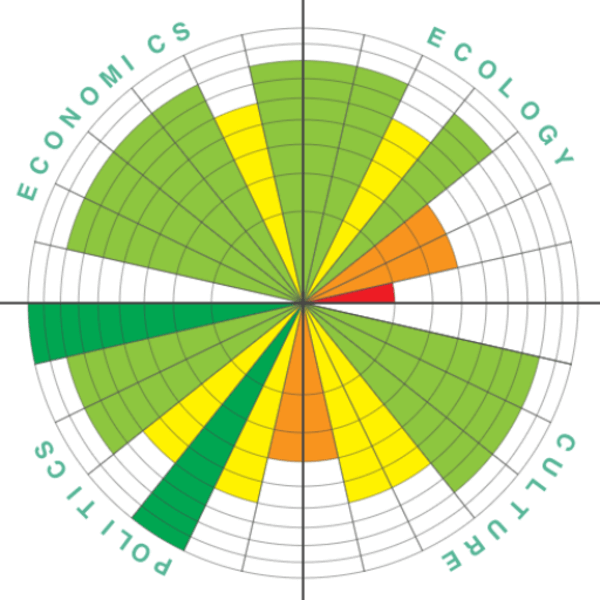Status
ongoing
50%
City
Kampala
Main actors
City Government
Project area
Whole City/Administrative Region
Duration
Ongoing since 2021
The Weyonje app is a digital tool created for licenced sanitation service providers in Kampala City, allowing them to efficiently manage and track waste emptying jobs. The app enables service providers to record job details, track orders, including those assigned by the Kampala City Council Authority (KCCA), and record financial transactions, culminating in the creation of a comprehensive business profile.
Residents of Kampala can leverage the Weyonje app to request pit emptying services, facilitating timely and responsive sanitation management. A pivotal feature of the app is its GIS mapping capability which offers real-time insights into the whereabout of pit latrines across the city. This feature is instrumental for sanitation crews in optimising their service routes, giving priority to the most critical area and guaranteeing comprehensive coverage.
The GIS mapping component provides real-time data on the location of pit latrines throughout the city, enabling sanitation teams to efficiently plan their routes, prioritise areas with the greatest need, and ensure no area is overlooked.
The app has also become a tool for community engagement, encouraging residents to actively participate in maintaining cleanliness in their surroundings. The app disseminates information on sanitation best practices and the impact of poor hygiene, fostering a culture of cleanliness among the city’s residents.
Aligning with broader environmental sustainability goals, the initiative reduces the risk of groundwater contamination and the release of harmful pathogens into the environment, safeguarding both public health and local ecosystems.
Guangzhou Award
This project was awarded the 'Guangzhou Award' in 2023.
External links / documents
On Map
The Map will be displayed after accepting cookie policy
